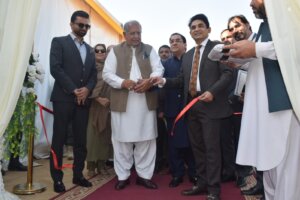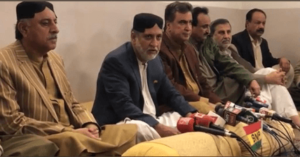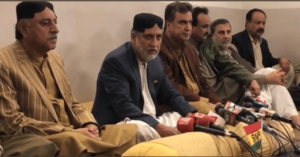Chandni Kakar:
Balochistan, being the most neglected province of Pakistan in terms of education, is grappling with a staggering number of out-of-school children, estimated at 2.7 million.
Approximately 72% of boys and 83% of girls are deprived of basic education, leading to an alarming situation that needs urgent attention. This pressing education crisis poses a significant threat to the nation’s overall development, as education is the backbone of progress.
Multiple factors contribute to the high number of out-of-school children in Balochistan, one of which is poverty.
Severe poverty forces many parents to send their children to work instead of school, resulting in child labour, especially in rural regions. This crisis has far-reaching consequences, extending beyond immediate concerns and impacting the nation’s socio-economic stability.
In the dusty streets and humble homes of these regions, poverty reigned supreme, casting a shadow over the aspirations of countless families. Among them was the Ahmed family. Like many others, they grappled with the harsh realities of poverty, their dreams shackled by the chains of economic hardship.
As the sole breadwinners, Muhammad and Fatima Ahmed toiled tirelessly to put food on the table and roofs over their children’s heads. Their eldest daughter, Ayesha, had always possessed a keen intellect and an insatiable thirst for knowledge. With dreams of becoming a teacher, she eagerly pursued her studies, her eyes alight with hope.
But as the family’s financial woes deepened, Muhammad and Fatima faced an agonizing decision. With each passing day, the cost of education loomed like a dark cloud, threatening to engulf their hopes and aspirations. Reluctantly, they made the heart-wrenching choice to pull Ayesha out of school, her dreams slipping through their fingers like grains of sand.
Across the rugged plains of Kachhi and the vast expanse of Jaffarabad, similar scenes unfolded, as parents grappled with the harsh realities of poverty. In the Khan household, Nasreen Khan watched helplessly as her parents made the agonizing choice to prioritize her brother’s education over hers. With each passing day, her dreams of becoming a doctor faded further into the distance, her spirit weighed down by the burden of inequality.
Yet, amidst the despair, glimmers of hope emerged. In remote villages and bustling towns alike, courageous individuals banded together to challenge the status quo and uplift their communities. Inspired by the resilience of girls like Ayesha and Nasreen, they launched initiatives to provide educational opportunities for underprivileged girls, bridging the gap between dreams and reality.
Through their unwavering determination and collective action, they sparked a revolution that swept across the regions of Killa Abdullah, Kachhi, and Jaffarabad, illuminating the path towards a brighter future for generations to come. And as the sun set on the horizon, casting a golden glow upon the rugged landscapes, Ayesha, Nasreen, and their fellow trailblazers stood tall, their spirits unbroken, their dreams soaring high against the backdrop of adversity. For in their hearts, they knew that no amount of poverty could ever extinguish the flame of knowledge burning within them.






